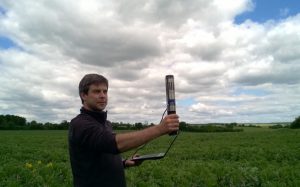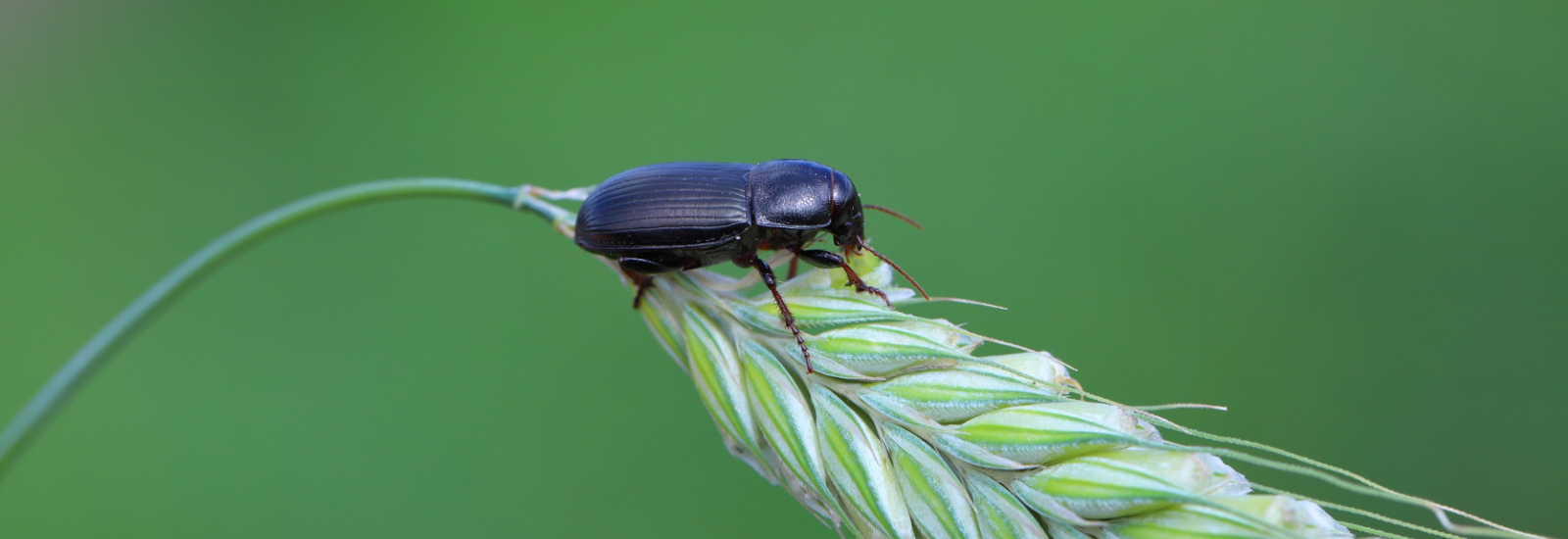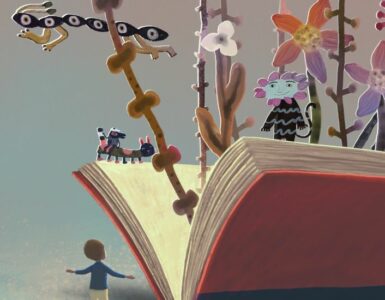Reading graduate turned academic, Professor Robbie Girling, shares how protecting biodiversity and making farming and food more sustainable go hand-in-hand.
 After studying zoology at Reading, Professor Girling embarked on a circuitous career path – working at universities in California, Dublin, Southampton and Kent – before coming back to Reading. He is now a Professor in Agroecology and Sustainable Agriculture, and Head of the Department of Sustainable Land Management, within the University’s School of Agriculture, Policy and Development. He said:
After studying zoology at Reading, Professor Girling embarked on a circuitous career path – working at universities in California, Dublin, Southampton and Kent – before coming back to Reading. He is now a Professor in Agroecology and Sustainable Agriculture, and Head of the Department of Sustainable Land Management, within the University’s School of Agriculture, Policy and Development. He said:
“I had a really enjoyable time at Reading and, working at the University as an academic, I often walk past the old student house I used to live in. I’m surrounded by memories everywhere and I love working here.”
Professor Girling’s research focuses on how air pollution is impacting on insects and the ecosystem, as well as on developing our understanding of how conservation can have benefits for farming.
“When we think about conservation, we tend to look at bigger species and overlook some of the smaller ones. But my research is focused on demonstrating how, through the protection of smaller species, we can benefit farming and make it more sustainable.”
The importance of insects
Professor Girling explains how crucial insects are to our ecosystem, and why conservation of these species is so important.
“Insect biodiversity is vital for a range of different natural processes. In terms of environmental processes, insects are important for nutrient recycling and naturally keeping other pests under control. Insects are also critical because they pollinate many wildflowers and crop plants,” he said.
“There has been a big push on saving bees recently – because they are very important – but also because people have an affinity with them. I fully support these efforts, but we have to remember that it’s not just bees which provide benefits. Species like ground beetles and spiders are really important predators and are just as critical for our ecosystems.
“In terms of bees, wild bees are often better pollinators than managed honeybees,” he said. “And these wild pollinators are really important for many fruit and vegetable crops, providing diversity in our diets, yet they are in decline as a result of habitat destruction, insecticides, climate change and air pollution.”
Protecting biodiversity and agriculture
In order to protect biodiversity, we need to make agriculture more sustainable. Professor Girling reveals how the two actions go hand-in-hand:
“I have a PhD student currently looking at integrating trees into arable farming. This is known as agroforestry, which is where you plant a row of trees then a row of crops in an alternating pattern. A system like this can bring many environmental and economic benefits to both the conservation of insects and to making farming more sustainable.
“Agroforestry provides the space for insects to exist within that system. So, if you have a row of apple trees, then a row of wheat or barley crops, the rows of trees can provide nesting sites for insects like bees and increase pollination rates. The rows of trees also provide refuge for predators and natural enemies of those insects, which can provide a natural form of pest control.”
Professor Girling and his team are doing this work and research on real farms right now, to demonstrate the benefits of such systems.
“There is growing interest among farmers, but they have to want to make the changes,” he said. “And to do that, they want to hear evidence from other farmers, not academics. By working with farmers who have already established these systems and key stakeholders – for example, we’re working with The Woodland Trust to communicate this project – we can hopefully demonstrate the potential benefits and encourage uptake.
“But we also need to see big changes to farming systems through governmental support because there are significant costs to changing systems in this way. Establishing a new system can be costly with some steep learning curves and, this is why the academics in my department are providing evidence to DEFRA and European governments on possible ways to improve the sustainability and economic viability of our farming systems.”
The recovery
When asked about whether we can still make changes to protect biodiversity, Professor Girling doesn’t hesitate in his answer:
“Absolutely.”
“Climate change is having a negative impact on insect populations – it is changing and shifting their habitats and distributions.
“We are seeing declines in many specialist species, which provide valuable functions, but generalist species are somewhat filling the void. These generalist species by their nature can survive in a much wider range of environments, so you still see many insects around, but we’re losing the specialists which provide extra benefits in terms of ecosystem function.
“However, insects tend to have very short lifespans, with most measured in weeks. This means that given the correct habitat, it is possible for insect populations to recover relatively quickly. In my opinion, we need to focus on the positives and look at ways of managing our systems to better preserve and look after our species.”
Find out more about Professor Girling’s research.






